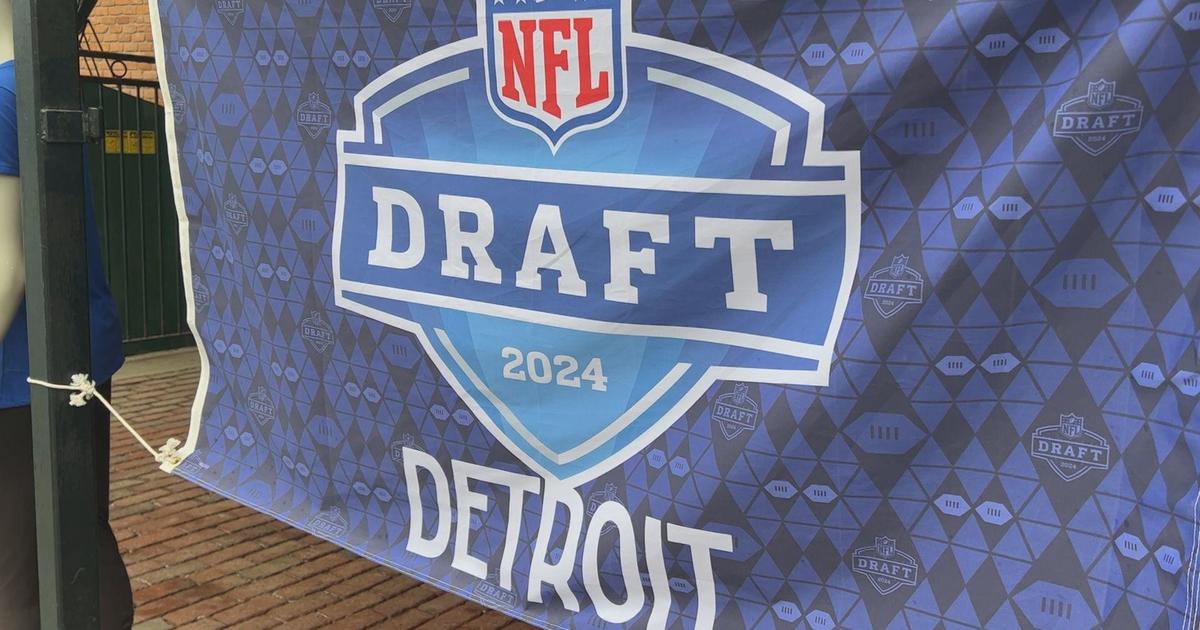Study: Energy Drinks Pose Risks to Kids
ANN ARBOR (WWJ/AP) - A new report is pointing to the dangers of kids consuming energy drinks. The study, in the in the medical journal Pediatrics, points to risk of heart palpitations, seizures and strokes in children who drink the products.
Dr. Matthew Davis with Ann Arbor's C.S. Mott Children's Hospital National Poll on Health says the drinks are filled with caffeine -- and too much of it.
"The recommended is no more than 100 milligrams of caffeine for a child in any given day. And, many of these energy drinks have that much, or perhaps even more, just in one serving," Davis told WWJ Newsradio 950.
"About a third of kids in our communities have at least tried these energy drinks. And a small proportion, but still a sizable proportion, are using them on a regular basis," he said.
The report's authors say parents should strongly encourage their kids to avoid the energy beverages, and Davis agrees.
"I do ask about these when I'm talking to kids and I encourage them to stay away from them just because the effects can be pretty unpredictable and, in some cases, very unsafe," Davis said.
Davis says when a kid gets to the end of high school or college it's safer to consume a couple the energy drinks now and then without really running into health problems.
On The Early Show, CBS New Medical Correspondent Dr. Jennifer Ashton said that, when you talk about the ingredients of this genre of beverages, what you don't know really can hurt you.
These drinks "are completely unregulated by the FDA (Food and Drug Administration) because they fall under the category of a supplement," Ashton said. "So you don't know how much caffeine is in there. You don't know how many other substances that act as central nervous system stimulants are in there -- and those can be dangerous."
For people who need a little boost, there are things you can do naturally without caffeine.
Ashton suggests drinking water, because sometimes dehydration is sensed by your body as fatigue, taking a walk around the block, sleeping well and snacking on protein snacks throughout the day.
"All of those are safe, low-risk ways to boost your energy," Ashton said. "This,(energy drinks) high risk."
Introduced more than 20 years ago, energy drinks are the fastest growing U.S. beverage market; 2011 sales are expected to top $9 billion, the report said. It cites research suggesting that about one-third of teens and young adults regularly consume energy drinks. Yet research is lacking on risk from long-term use and effects in kids -- especially those with medical conditions that may increase the dangers, the report said.
The report comes amid a crackdown on energy drinks containing alcohol and caffeine, including recent Food and Drug Administration warning letters to manufacturers and bans in several states because of alcohol overdoses.
The report focuses on nonalcoholic drinks but emphasizes that drinking them along with alcohol is dangerous.
The American Association of Poison Control Centers adopted codes late last year to start tracking energy drink overdoses and side effects nationwide; 677 cases occurred from October through December; so far, 331 have been reported this year.
Most 2011 cases involved children and teens. Of the more than 300 energy drink poisonings this year, a quarter of them involved kids younger than 6, according to a data chart from the poison control group.
That's a tiny fraction of the more than 2 million poisonings from other substances reported to the group each year. But the chart's list of reported energy drink-related symptoms is lengthy, including seizures, hallucinations, rapid heart rate, chest pain, high blood pressure and irritability, but no deaths.
Monday's paper doesn't quantify drink-related complications or deaths. It cites other reports on a few deaths in Europe of teens or young adults who mixed the drinks with alcohol, or who had conditions like epilepsy that may have increased the risks.
A clinical report on energy drinks is expected soon from the American Academy of Pediatrics that may include guidelines for doctors.
The Associated Press contributed to this report.



